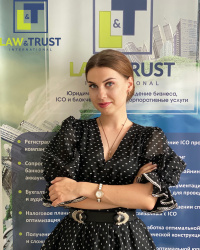In connection with the resulting increase in the number of intellectual property items and transactions related to intellectual property, the number of disputes with such objects will undoubtedly increase. Both users and owners of intellectual property rights need well-functioning and efficient mechanisms for resolving disputes, the quantity and technical complexity of which are continually growing.
The problem of copyright infringement is the most pressing and relevant in the context of modernity. The number of offences committed on the Internet is increasing. It is primarily due to the ease of borrowing content as well as the imperfection of legislation in the field of legal regulation of copyright on the Internet. The legal framework for copyright protection, developed in the late 19th and early 20th centuries, is aimed at entirely different realities and does not reflect the current situation when this or that content can be easily obtained and copied using the Internet. Moreover, it is complicated to protect copyrights violated on the network, since with the advent of the digital form of works, it turned out that it is ideal for replication among network users since digital copies of actions can be present anywhere and as many times as you like.
The development of the Internet has shaken its central principle - territoriality. Territoriality is the dominant category for determining the boundaries of the jurisdiction of any state and its judicial bodies. The state exercises full power within its territorial limits, and the MCHP has arisen to resolve conflicts that arise when private relations concern two or more jurisdictions.
If any non-contractual obligations arising from one party to the other party and these parties are located in different states, the MCHP applies the law at the place of the violation (lex loci delicti). In case of copyright infringement on the Internet, it is complicated to determine the location where the offence was specifically committed, which causes particular problems in choosing the law applicable to the resolution of the dispute and the forum for seeking protection for the violated rights.


The US courts were among the first to face the problem of copyright infringement on the Internet and developed mechanisms to determine the applicable law and the court in which the case should be examined. The primary device is the so-called Zippo scale. In resolving the matter, Zippo Manufacturing Co. V. ZippoDotCom" The US Supreme Court applied the so-called "Zippo sliding scale".
The court indicated that in determining the applicable law and the forum for the consideration of the dispute, the type of activity of the alleged offender is essential. So, if a potential infringer of a copyright does business on the Internet, making transactions with persons located in the territory of the relevant jurisdiction, which entails a constant and targeted transmission of data in the form of electronic files, then these relations should be interpreted using the laws of the country of purchasers of goods.
In the case of interactive sites, i.e. those on which users can independently distribute information, the degree of interactivity affects the distribution of the buyer's jurisdiction. So, if the site provides the user with the ability to post and receive information, send requests and receive answers to them, and, most importantly, make any transactions through the site, then the buyer's jurisdiction can be extended to this site.
If the respondent merely lays out the information on the website and does not carry out commercial activities, then such action through the website does not give grounds for the extension of the jurisdiction of the person whose rights have been violated. It is necessary to apply to the court at the location of the defendant to bring the person to respond.
THE CASE OF CYBERSELL, INC: JURISDICTIONAL RULES
THE CASE OF CYBERSELL, INC: JURISDICTIONAL RULES
In the case of Cybersell, Inc. v. Cybersell, Inc." (130 F. 3d 414 (9thCir. 1997) the court refused to extend its jurisdiction to the dispute, referring to the passivity of the defendant's website. The reason for this statement was that the site did not suggest registering users or placing them on the mailing list. Another factor in favour of the defendant was the fact that the court did not find "a large number of visits from territory under one jurisdiction" and a non-focus on US users.
The US judicial system also faced the problem of not being able to identify an infringer of copyright on the Internet. The only way that can lead (but not necessarily lead) to the copyright infringer is the IP address that the violator used when downloading the content.
However, American justice has the tool to initiate the process when the real respondent is unknown to "plaintiff John Doe and defendant Richard Roe". This tool is used when the only thing that is known about the intruder is the IP address. It indicates the country in which the illegal content was downloaded and the Internet provider who was delegated this address.
In recent years, the European Court of Justice has applied three different approaches to determining the appropriate jurisdiction of dispute resolution. These approaches were based on a collision binding on the specific domain of lex loci delicti, the definition of which is contained in art. 5 (3) of the Brussels Directive No. 44/2001 of December 22, 2000, on jurisdiction, recognition and enforcement of civil and commercial disputes - for obligations arising from tort or quasi-tort it is necessary to apply the law of the country where the event occurred, causing harm or where the damage could have been caused.
Three modern approaches of the European Court of Justice on the interpretation of the lex loci delicti for offences on the Internet are:
- The country to which the site is addressed;
- A country where the content site is available;
- The land where the content was uploaded.
The first approach is contained in the decision of October 18, 2012, in the case of Sportradar - the jurisdiction has the court of the country whose users the content of the site is addressed. However, this approach did not justify itself, and the European Court rejected such a plan in favour of the attitude of the "country where the content site is available".
This approach was formulated in a decision dated October 3, 2013, in the case of Pinckney (C-170/12).
The plaintiff proved that the CD offered on the defendant's site (a counterfeit copy of the work) could be purchased through the website in France. It is enough to substantiate the connection between the violation and the harm to which France is the cause. Consequently, a French court has jurisdiction in this dispute.
However, following this approach, the Claimant appeared to be limited in the number of recoverable damages to the number of counterfeit copies of the work that are available for sale in the territory of a particular country. The question remains to prove the maximum amount, the plaintiff must buy all copies? Otherwise, how will he convince the exact number of copies of the work available in the country of judgment?
The third approach is the country in which the content was uploaded, suggested by Pedro Cruz Villalon, one of the European Court of Justice's general lawyers in his dissenting opinion on the Hejduk case (C-441/13).
Reflecting on how to solve the problem of "unattached" damages to the territory ("delocalized" damages), Pedro Cruz Villon noted that the fact of accessibility for viewing (and downloading) a work (illegally posted on the network) in any part of the world does not no reference or linkage to the place where the violation was committed or damages.
Pedro Cruz Villalón suggested using the "causal event" criterion - the place where a person committed an act that is a violation of copyright, that is, often a place to download illegal content. However, the European Court of Justice did not use this opinion and adhered to the approach of accessibility in the country of the court.
Lawyers of Law and Trust are ready to provide you with legal assistance in protecting your copyright in the real world and on the Internet, defending your interests both in the negotiation process and in court. We can also assist you in registering trademarks and patents worldwide.
KEY BENEFITS OF LEGAL SERVICES OFFERED BY LAW AND TRUST INTERNATIONAL
Our clients



























